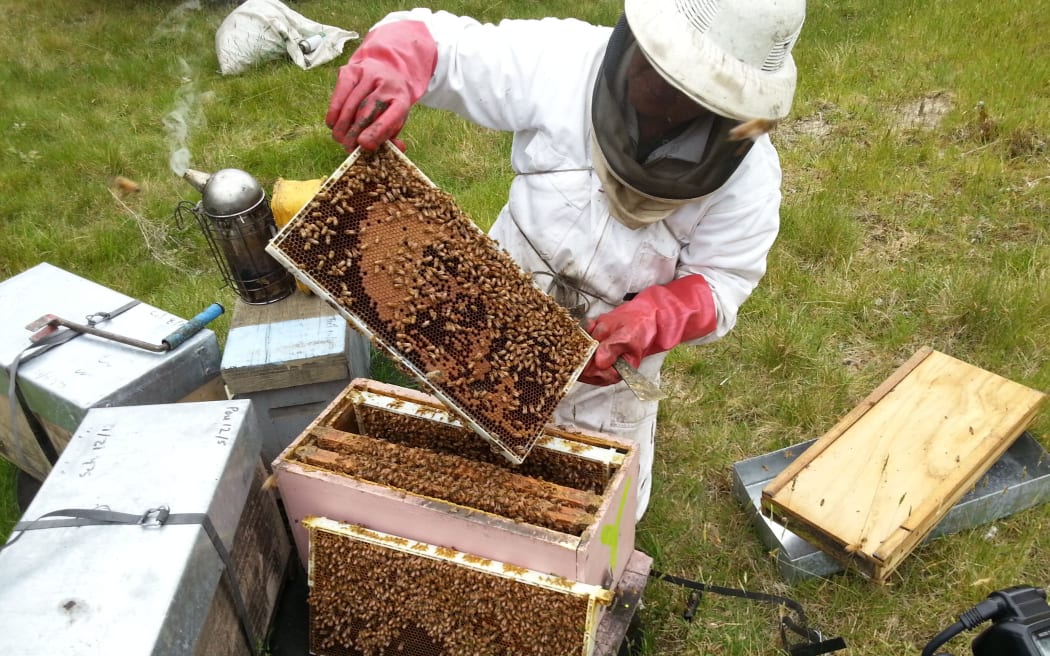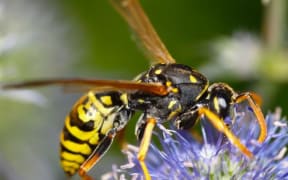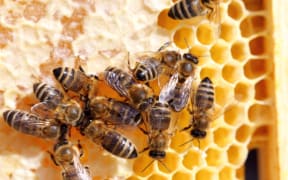The Department of Conservation (DoC) is worried large-scale honey operations could be having a negative impact on conservation.

A beekeeper inspects a hive. Photo: Linda Newstom-Lloyd, Landcare Research
New research from DoC shows that honeybees can alter the pollination process of indigenous plants, help reproduce weeds and transfer viruses.
In the last year, the number of hives on public conservation land has almost doubled to about 16,000. DoC said it was currently processing another 16,000 hive applications.
"Honeybees definitely have an impact, some of that can be quite positive, but it's also showing that they potentially have some downsides especially in conservation areas that have special values or cultural areas that are important.
"We need to be very careful how we allocate hives to be in those areas," said DoC commercial partnerships director Geoff Ensor.
Honeybees were first brought into New Zealand in 1839 and 6 percent of all managed beehives are on public conservation land.
Bees were an important part of the agricultural sector, but for indigenous species they could affect the ecosystem in a variety of ways, Mr Ensor said.
DoC acknowledged that there were gaps in the study, because of a lack of scientific research in New Zealand on indigenous ecosystems.
Federated Farmers bee industry group chair John Hartnell said the research was important, but it did need to be more relevant to New Zealand.
"We need to set the science projects up and learn because we need to learn from a New Zealand perspective rather than from gleaning information perhaps from other countries around the world.
"We need to ... really clearly understand the impact - if there is one at all - on an excluded areas versus an area that permits commercial beekeeping."
One of DoC's recommendations in the report, Honeybees (Apis mellifera) on public conservation lands, is to make some areas free of honeybees, even if they have a history of commercial bees.
Mr Hartnell said if DoC was planning on locking up some areas to be bee-free he hoped it was done carefully.
"The key thing is to respect those beekeeping families and businesses that have been a part of that whole process with DoC for a long time and doing a good job.
"I just hope those concessions are respected and are not lost because of some other driving factor."
DoC is currently working with iwi and beekeepers to find a new way of allocating hive concessions.




